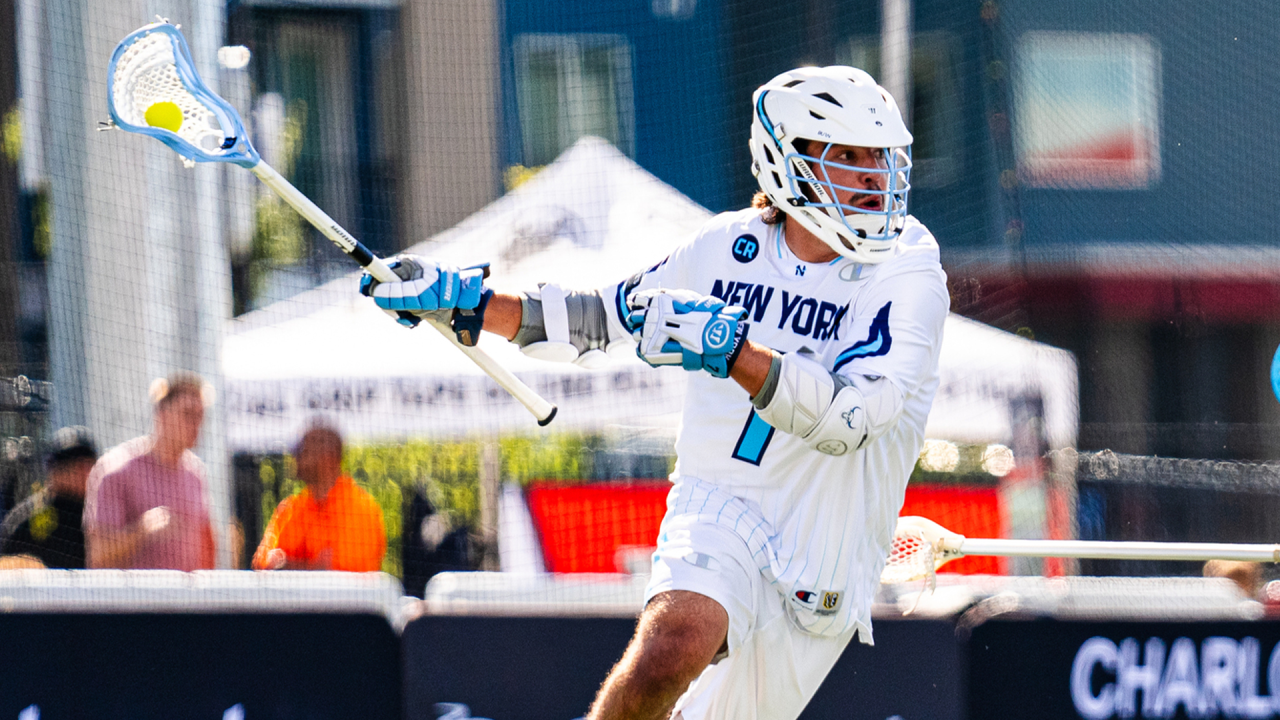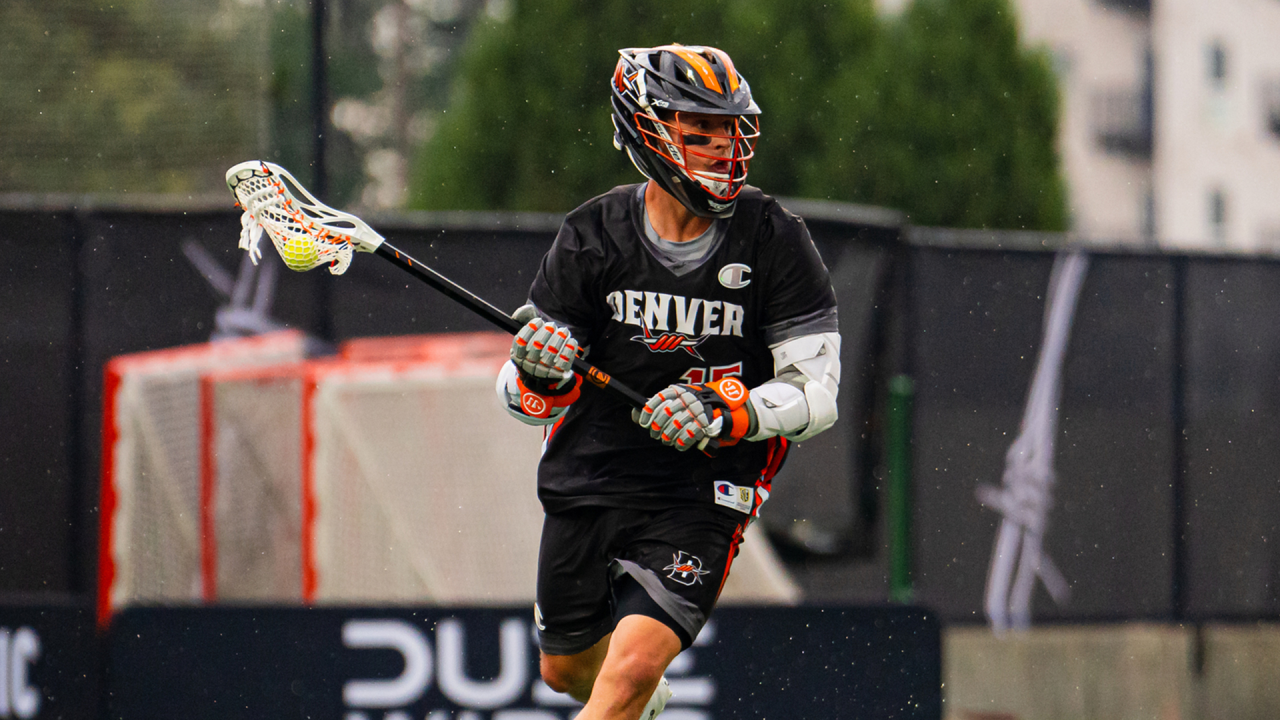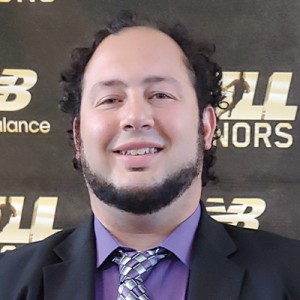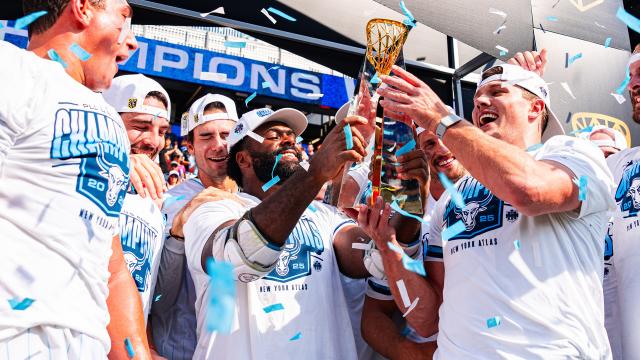
Pro Lacrosse Greats Speak on What it Takes to Win a Championship
Jeremy Sieverts sat down for breakfast with Matt Bocklet and Eric Law in Fullerton, Calif., where the Denver Outlaws teammates were set to play in the 2016 Major League Lacrosse All-Star Game.
While the purpose of the weekend was to celebrate the best of the best in Major League Lacrosse, including five players from Denver, the Outlaws — who had never finished a season with a losing record — were 3-6 after the first half.
Though the team was in uncharted territory, the trio of All-Stars looked at each other across the table and said the same thing.
“We all think that we can win,” Sieverts said.
When the regular season resumed, so did Denver’s winning ways. The team won five consecutive games after the All-Star Game to finish 8-6; Denver earned the third seed in the playoffs thanks to a series of tiebreakers needed to solve a seven-team tie for first place. The Outlaws once again beat the Lizards in the semifinals and then defeated the Ohio Machine to win their second championship in three years.
Having one championship under his belt already gave Sieverts confidence, and that 2016 season taught him something important about what it takes to win.
“You always have to have a belief in yourself and your team in order to get there,” he said. “You’ve got to have guys that are willing to play hard and sacrifice for each other. If you have that, you can do pretty well.”
Every team begins a new season with aspirations of winning a championship, but accomplishing that feat isn’t that easy. Some of the best players the professional game has ever seen — John Galloway, Joel White, Eddy Glazener, Tucker Durkin, Matt Danowski and Jordan Wolf, just to name a handful — never won a championship in the pros. The same can be said for many players that are 2024 Premier Lacrosse League award nominees like Jeff Teat, Garrett Epple and Trevor Baptiste.
Sieverts won five championships in 10 seasons as a member of the Chesapeake Bayhawks, Outlaws and Whipsnakes. While every title run was a challenge, Sieverts said the most difficult to win was Denver’s first in 2014.
Denver played in every semifinal from its inception in 2006 through 2013. It reached the championship game four times, going 0-4. The 2013 season was arguably the biggest disappointment, as the Outlaws steamrolled through the regular season, finishing 14-0, before losing to a hot, upstart Charlotte Hounds team in the semifinals.
“The Outlaws organization had been successful for nine years and just couldn’t get it done. That one was a feeling of relief as much as it was joy and all of that,” Sieverts said. “The first one is the hardest because you don’t know what it takes. The margins are so thin. Not that it’s up to chance, because it’s not. It’s people making plays and all those things, but it’s tough to stay locked in and get it done.”
That 2014 championship sparked an incredible run for the Outlaws, who played for the title every season from 2014-20 other than 2015, and they won three championships in five seasons from 2014-18.
The first one is the hardest because you don’t know what it takes. The margins are so thin.
Jeremy Sieverts on winning a championship
Max Adler was a second-year player in 2018. A seventh-round draft pick out of Bentley, Adler emerged that season as one of top faceoff athletes in the league. The team was so confident in his abilities that it traded Thomas Kelly — an All-Star the year prior — to the Lizards.
The closer Denver got to the championship game, the more the nerves kicked in.
“We had a good faceoff guy, and they handed me the keys, and it felt like I was driving a Ferrari or a really nice sports car, and they’re like, ‘Just don’t crash,’” Adler said said. “For me, it was like, if I could just do my job, we’re going to be in a really, really good position to win. I was super nervous, but at the same time, I leaned on my training, and I was getting reps from Joe Nardella, and I knew how much I put into it. I knew I worked harder than anyone else, so that gave me the confidence I needed to excel and put everything together.”
With championships in 2019 and 2020, Sieverts padded his career total, but he still fell short of the King of the Rings, defender Brian Spallina, who won seven MLL championships.
His final title came in 2015 with the Lizards, who acquired him via a trade with the Bayhawks. The Lizards, who won two of the first three championships in league history, had not won a championship in 11 years. In the previous few seasons, New York had accumulated plenty of All-Stars, like Rob Pannell, Joe Fletcher, Drew Adams and Greg Gurenlian, but they couldn’t get over the hump. The team added to its star-studded lineup by acquiring Paul Rabil via trade with the Boston Cannons.
Spallina said the tension and pressure in the locker room was palpable, and winning the championship that season was also his most difficult.
“We had the best of the best at every position, and they had that for years, and they just couldn’t figure it out,” he said. “The tension in the room, in a cool way, they all held themselves accountable, but in a not-so-cool way, they couldn’t relax in those positions and just go out and do what they were meant to do.”
Utah Archers midfielder Ryan Ambler knew what that was like.
Prior to the 2023 season, the Archers made the playoffs every season and lost in the semifinals twice. The narrative was that the team couldn’t get over the hump. Even before the PLL, Ambler was a member of the 2017 Outlaws that lost in the championship to the Machine. The following year, Ambler joined the defending champions, but a slew of injuries led to a last-place finish, the team’s worst finish since 2013.
Ambler acknowledged that coming up short on so many occasions can affect a player’s mindset.
“You have heartbreak, or you don’t finish where you’re supposed to with such high expectations, and you feel it,” he said. “When it happens a couple times, maybe you start to grip the stick a little tighter and wonder if it’s ever going to happen.”
Overthinking, especially in big moments, can mentally freeze even the best players. In those moments of uncertainty and nervousness, Sieverts said it was best for him to take a step back and remember all the work he put in the weeks and months prior.

“You have to have self-belief you’ve done what’s required,” he said. “The only way you do that on a regular basis is sticking to your plan and going to work. In those nervous moments leading up to those games, it’s reminding yourself, ‘Hey, I put the work in. I’ve made my deposits. Now, you have to relax and play and let what you’ve done training-wise carry you and give you a sense of peace.’”
Sieverts understands the tightness in championship games comes from feeling like you put so much into the season. Having that sense of peace is important because winning a championship can simply come down to the ball bouncing one team’s way.
Ambler pointed out Brett Dobson’s save on Jake Carraway’s two-point shot with a half-second remaining in the 2023 title game. He said if Dobson doesn’t make “the save of a lifetime,” then he narrative about the Archers failing to win the big one continues, and Ambler remains without a title.
The 2023 championship was decided by one goal, and Dobson’s save preserved that victory. Ambler also pointed to the hustle plays that occurred before that final shot, such as one of the “gritty” ground balls Mac O’Keefe picked up or when Connor Maher sold out and dived toward the endline on a missed shot, beating out Michael Sowers and earning the Archers a key fourth-quarter possession.
To get moments like those, Sieverts said you have to have teammates that are willing to sacrifice for each other. For Spallina, that meant setting up a locker room culture in which every person is treated with respect and as an integral part of success.
“I think the connections throughout are what’s most important,” Spallina said. “I can remember a time on the Lizards, one of the rookie guys throwing a water bottle down on the floor coming out of a huddle. I was like, ‘What the hell is that? What are you throwing that on the floor for?’ [He replied] ‘Oh, the trainer will get it.’ No, the trainer isn’t getting it. You pick it up and put it in the thing.
“If you want to have winning ways, you need everybody bought in. That’s guys on the field, guys that are on the team but are not on the field, trainers, coaches, even ownership.”
It’s all about building bonds that extend beyond the playing field.
Adler, who also won with the Chaos and the National Lacrosse League’s Buffalo Bandits, said he is still friends with all those teammates.
“You don’t share those experiences with anyone else,” he said.
He also said that winning a championship isn’t just about doing it for your teammates and staff, either. The fans are also part of the team’s motivation. Adler specifically remembered during his time with Buffalo that a young fan, Hannah, was getting cancer treatments but still coming to Bandits games.
“Not to make it bigger than it is, but us winning brought her joy,” he said. “It has that impact on people, so yeah, it adds to it … maybe I will work a little harder. Maybe I will make more sacrifices. When you have people like that, it’s a lot bigger than just yourself and your teammates, too.”
Through his numerous championships, the biggest lesson Spallina learned was how to be vulnerable and understand that not everything will work out perfectly. You have to be honest with yourself about the effort you put in.
While it’s important to put in the work yourself, Spallina — who is a second-grade teacher — said you have to realize that it’s not just about you, and that lesson transcends the sport.
“Hard work, determination, nothing comes easy. Nobody just says one day they want to go out and win it,” he said. “Those life lessons of determination and effort and fighting for the things you believe in, whether it’s a win, or sometimes it’s bigger than the game. Sometimes a teammate needs support in a certain way, or sometimes somebody’s sick, or maybe, somebody’s having a kid or whatever the case is. Those lessons in sports really resonate in my regular life, putting other people first.”
Phil Shore
Phil Shore has covered lacrosse for a variety of publications. He played Division III lacrosse at Emerson College and is the current head coach at Osbourn Park High School in Virginia. His first book, Major League Life, was published in June 2020. Shore has contributed to USA Lacrosse Magazine since 2011.

Categories
Related Articles




